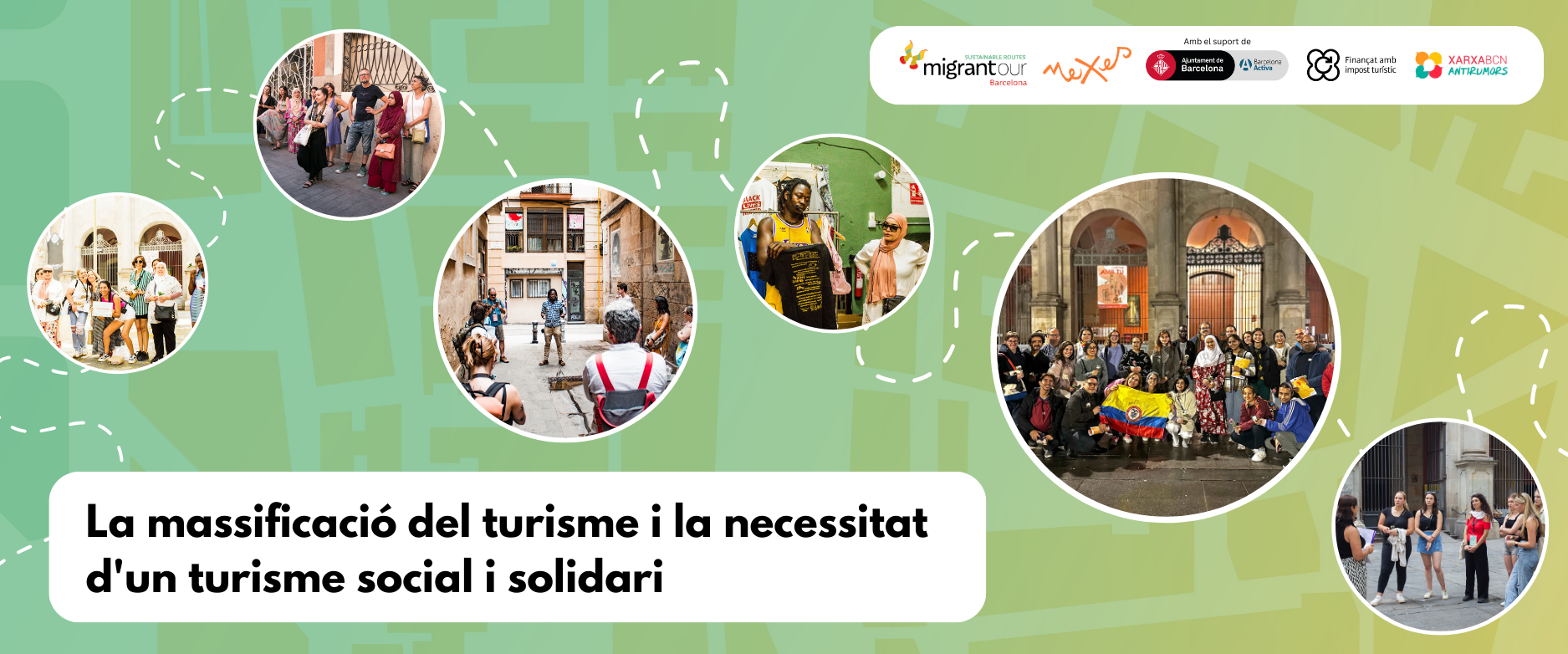This week we have seen how the media published the news “Spain registers a record 85 million foreign tourists in 2023” (El País, 02 FEB 2024, https://www.direccion.de/recuperacion-para-el-lector/ ) a headline that may seem positive but behind it hides the large number of harmful effects that the tourism industry entails. Barcelona received more than 10 million tourists in the last year, expanding with this tourism model a gentrification and environmental degradation that suffocated the city.
Barcelona, one of the most vibrant and visited cities in Europe, has become an epicenter of world tourism. However, this unprecedented tourist success has also generated a series of challenges related to the massification of tourism and has highlighted the need to promote a more sustainable, inclusive and solidarity-based approach in the city’s tourism sector.
With the celebration of World Tourism Resilience Day (February 17), we at Nexes, wanted to bring forth a model that puts people at the center since it is the most important heritage of a city. We believe that a model that benefits local communities, promotes decent remuneration and is built around the principles of the social and solidarity economy is possible.
This commitment by Nexes translates into the coordination of the Migrantour Barcelona project. A project of social and solidarity tourism, highlighting migrant voices who seek to change the narratives of migration and fight against the stigmas of neighborhoods such as Raval. A two-hour tour that addresses cross-cutting issues such as UDHR, interculturality, racism, examples of resilience. Specifically, in recent months we have been working within the framework of a project subsidized by Barcelona Activa- We are constructing a new route in the Poble Sec neighborhood in order to continue promoting this type of tourism model in other areas of Barcelona, making the project a reality at city level.
At a time when migration and cultural diversity are at the centre of the public debate, initiatives such as Migrantour are more important than ever. With a space for intercultural dialogue and the celebration of diversity, Migrantour contributes to the construction of a more inclusive and tolerant society in Barcelona and in more than 20 cities where the Migrantour network is present. This initiative shows that tourism can be a powerful tool for promoting mutual understanding and building bridges between different communities.
The initiative is carried out within the project “Migrantour, the invisible wealth of the city” with the support of Barcelona Activa and Barcelona City Council.

